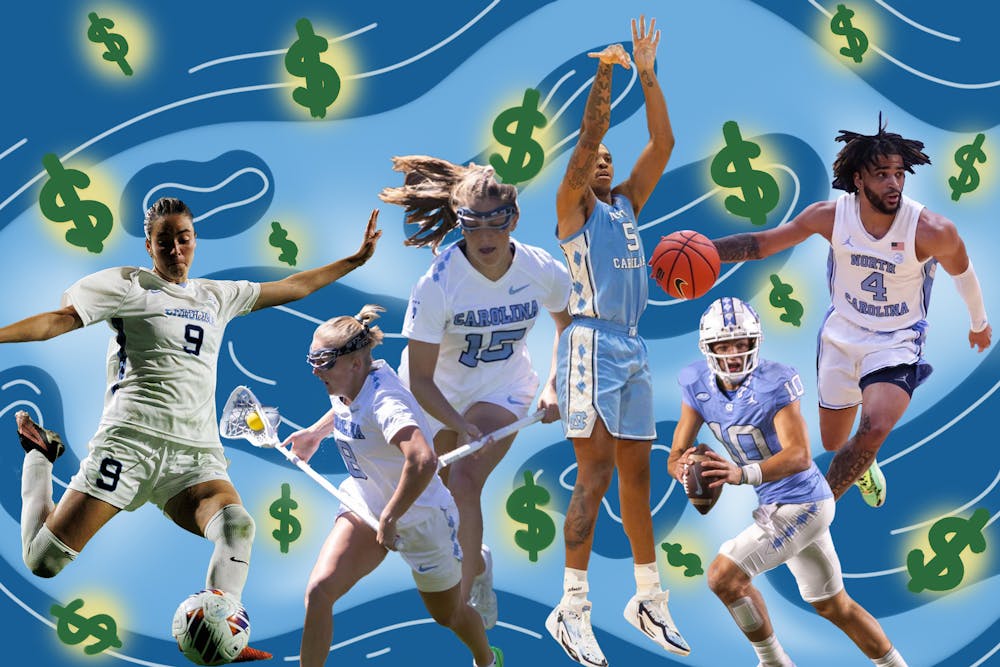If you are a North Carolina sports fan or follow college sports in any capacity, it's likely that the media you’ve consumed in the past three years has been saturated by advertisements, sponsorships and paid posts from collegiate athletes. Perhaps you’ve seen the men’s basketball team promoting Fortnite or Drake Maye working the counter of a Raising Cane’s food truck.
Before 2021, none of these paid opportunities for collegiate athletes were possible. Previously, receiving compensation in any manner outside of scholarships and stipends was enough to render an athlete ineligible to participate in the NCAA. However, in 2021 the U.S. Supreme Court ruled that collegiate athletes could receive compensation for the use of their name, image and likeness.
In the three years since this case, college athletes across the NCAA have taken full advantage of the opportunity to be compensated for what could be considered their full-time job. This past May, former men’s basketball center Armando Bacot revealed that during his time at UNC, he made $2 million in NIL deals.
Yet, NIL is not perfect. While it solves the larger issue of overall compensation, it raises more concerns surrounding equality, specifically when it comes to funding and opportunities that one sport or player may receive over another — especially when considering the provisions of Title IX, a landmark policy crucial to leveling the playing field for gender-based opportunities in college sports.
Title IX explicitly outlaws discrimination based on sex from federally-funded educational programs and activities, including athletics. Since its passage, Title IX has been essential for women’s sports, requiring colleges to provide equal participation, benefits and scholarships/financial assistance to both male and female athletes and teams.
But NIL money does not come from schools directly. In many states, colleges and universities are prohibited from being involved in athletes’ NIL deals at all. This was the case in North Carolina until May 2024, when Governor Roy Cooper rescinded a previous executive order establishing NIL regulations. Instead, NIL functions through third party groups, which can range from small businesses like Ease Plumbing (of Leaky Black fame) to large booster collectives formed by alumni.
While player-specific advertisements or commercials should be exempted, donations made by NIL booster collectives should be subject to Title IX. These collectives, though not officially connected to the school, are essentially affiliated with it when it comes to dispersing funds to athletes. They are often run by alumni and former athletes of that university and channel money between donors and the athletes themselves. If they are representing the school in any capacity and offering opportunities related to a college’s athletics, they should be required to extend their opportunities to more than the highest profile players, who are predominately male.
Extending equal opportunities to all collegiate athletes is extremely important. All athletes, regardless of sport, are representatives of their university. It should not matter whether a sport brings in $67.2 million per year like football or is just strongly supported by a smaller, but equally-diligent fanbase, like gymnastics. Access to NIL opportunity should be universal, and denying it is quite possibly a direct violation of Title IX.
NIL rules have to be created to work in conjunction with Title IX in order to ensure that a law which has done so much good for women's collegiate sports and programs continues to be effectively administered in college athletics. The NCAA, UNC and the state of North Carolina need to ensure that the funding athletic teams receive is equal, regardless of gender. It is unacceptable to limit athletes’ money or access to opportunities granted through NIL simply because of their sex or the sport they play.




